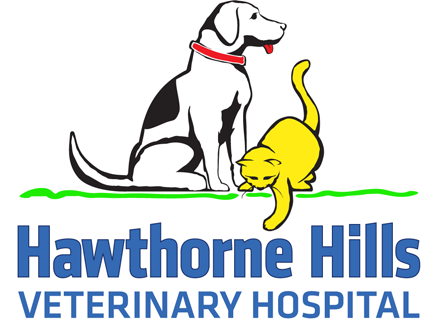
Seattle veterinarians explore the importance of new puppy veterinary visits – much more than just shots.
Meet Gretchen, one of the newest additions to the Hawthorne Hills Veterinary Hospital’s family of patients. We first met her in February and wanted to share with you what her first exam was like and what is coming up for this cute little fur ball. A puppy’s first year of life is filled with lots of wonderful memories and lots of special health obligations as well.
 The first few months are a critical period in a puppy’s development. Gretchen will have a series of puppy appointments that are scheduled about four weeks apart to ensure she has the appropriate vaccination coverage and that her new family has the knowledge they need to help mold her to be the perfect addition.
The first few months are a critical period in a puppy’s development. Gretchen will have a series of puppy appointments that are scheduled about four weeks apart to ensure she has the appropriate vaccination coverage and that her new family has the knowledge they need to help mold her to be the perfect addition.
During Gretchen’s first puppy exam the veterinarian, with the help of our skilled assistants, will ask questions and cover many important aspects of puppy care, including information and advice on nutrition, training, behavior, and socialization.
 We collect important information concerning:
We collect important information concerning:
- Where she was born.
- What diet she is currently on.
- Any vaccines or deworming she had received up to this point.
- How potty training is going.
- Any other behavioral concerns if noted by Gretchen’s family.
The initial puppy exam includes:
- Physical exam:
A full evaluation of Gretchen’s body from nose to tail will determine if she has problems like ear infections, skin infections, a heart murmur she was born with, or other issues that can be uncovered in the early stages of development. The exam also helps us establish baselines for what is normal about Gretchen.
- Behavioral assessment:
Is Gretchen outgoing, shy or does she seem fearful? Is she food motivated or does she desire physical attention (petting, sweet talking, etc.) All of this information will make her appointment more positive and fun so coming to the veterinarian will be as pleasurable an experience as we can make it.
- Training issues are discussed such as:
Proper techniques for house breaking; how to crate train, as well as many reasons why it is important to crate train; curbing inappropriate biting/chewing behaviors and giving advice about proper play and chewable toy alternatives.
- Fecal testing:
Since it is common for puppies to have intestinal parasites, we will test multiple stool samples during this young age to ensure we are finding and treating the parasites that have potential consequences to the pet, as well as their human family if not controlled.
- Parasite prevention: including fleas and intestinal parasites.
- Vaccines are administered and discussed:
These vaccines prevent diseases such as Parvo, Distemper, and Viral Hepatitis (DHP-P). We discuss other vaccines (such as Leptospirosis, Bordetella (Kennel cough) and Rabies) that will be given in upcoming visits, as well as the need and reason for boosters of vaccines already given. We always use treat motivation if possible and appropriate to make the vaccines as painless as possible.
All dogs should be kept current on DHP-P, and Rabies vaccinations. We also recommend maintaining current Bordetella vaccinations for those dogs that regularly go to training classes, dog parks, boarding kennels, dog shows, or grooming facilities. They are at greater risk of exposure.
- Client education:
We send home recommended diet and parasite preventative samples. We also provide educational materials to help with the puppy training process, discuss importance of training and where puppy training classes can be found.
After the first visit, Gretchen will need to return every 3-4 weeks until she is 16 weeks old, then generally every 6 months as she grows into a young adult. The following is a list of the things our Seattle veterinarians will do during a visit:
- A physical exam is performed to make sure Gretchen still appears normal or to follow up on any problems that were noted and treated on the previous visit.
- A behavioral assessment to review her growth progress as she moves through the rapidly changing stages of puppyhood. We identify any developing problems that need to be addressed to prevent major behavioral problems later.
- We discuss how the housebreaking and crate training process is going and we trouble shoot if problems are persisting. We also address any other issues discussed at the previous exam. As Gretchen grows we also introduce all of the handling techniques to help Gretchen to get used to the things her family will need to teach – getting her nails trimmed, having her teeth brushed, holding still to have muddy feet cleaned, holding still for grooming; all of the skills that help as puppy learn to be well adjusted for a lifetime.
- Fecal exams are performed routinely. If the previous test was positive for significant parasites and required treatment, we want to verify that there were no further parasites. Sometimes intestinal parasites can be missed because of larval migration patterns, and sometimes puppies acquire infections in the time period since the previous fecal exam.
- Parasite prevention: including fleas and intestinal parasites. Our goal is to be confident that Gretchen is worm or other intestinal parasite free; not only for her own health, but also for the health of her family as intestinal parasites can sometimes be spread to people, and nobody wants fleas infesting their house. For this reason, we also recommend life-long parasite control and refill preventatives as needed based on Gretchen’s current size.
- We update additional needed vaccines and vaccine boosters and, once again, use treat motivation to give Gretchen a positive association, not only of coming to the vet hospital, but of the injections themselves.
- We also continue the discussion and recommendations for:
- Spay and neutering (including best timing of surgery, pre-anesthetic requirements and consequences of not spaying and neutering pets).
- The amount of exercise and type of exercise.
- Maintaining a healthy weight into adulthood.
- Nutritional advise for what to feed, how much to feed, and how to address any issues such as diarrhea, vomiting, eating inappropriate items, picky eating or eating too much.
- And we provide patient specific guidance for each owner so that they can be proactive and involved in their pet’s health care.
It may sound like we cover a lot of information, but it is our mission at Hawthorne Hills that Gretchen’s family get the pet they were hoping for and one that will be healthy and happy for life.

